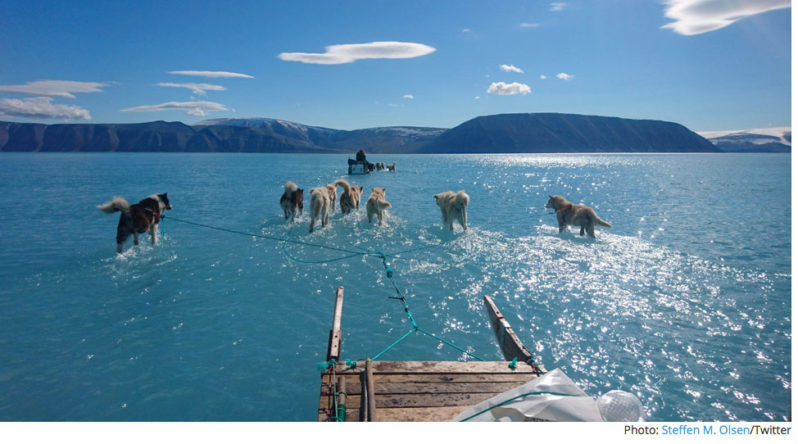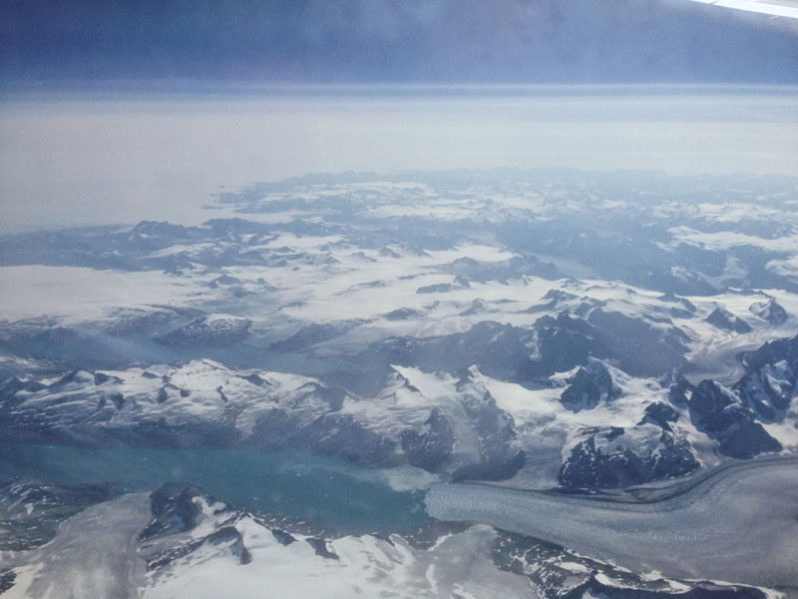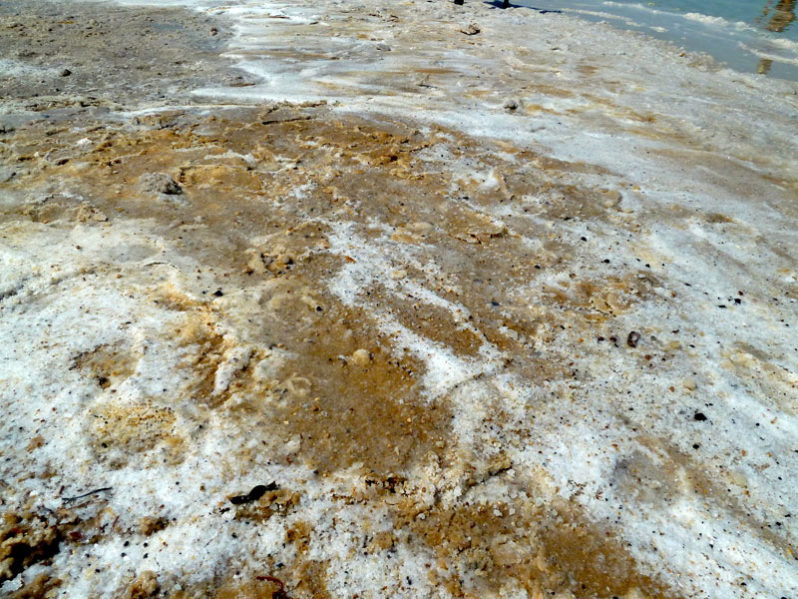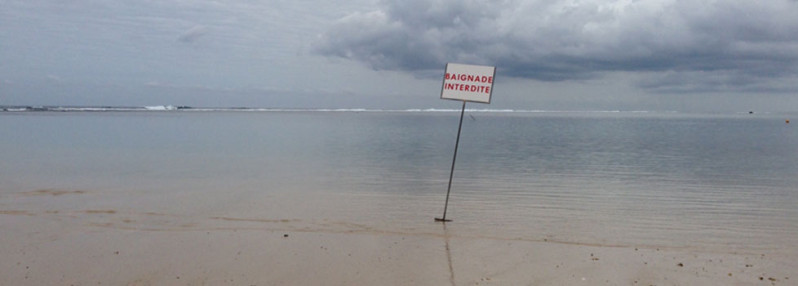These sled dogs aren’t walking on water, but something fishy is going on

Each year in June, just before all the sea ice has melted, climate scientists at the Danish Meteorological Institute head out by dog sled onto the Greenland sea ice to collect their instruments. Typically the dogs walk on ice for this task, but because of warming temperatures, this year the dogs were splashing in ankle-deep water.
Greenland lost 2 billion tons of ice this week, which is very unusual

Over 40% of Greenland experienced melting Thursday, with total ice loss estimated to be more than 2 gigatons (equal to 2 billion tons) on just that day alone.
Renewable Energy Capacity Now Exceeds Coal in U.S.

Renewable energy now generates more electricity in the United States than coal. Solar, wind, hydropower, biomass, and geothermal totaled 21.56 percent of U.S. generating capacity, according to a report from the Federal Energy Regulatory Commission (FERC).
As Water Scarcity Increases, Desalination Plants Are on the Rise

After decades of slow progress, desalination is increasingly being used to provide drinking water around the globe. Costs for processing salt water for drinking water have dropped, but it remains an expensive option and one that creates environmental problems that must be addressed.
Near-record ‘dead zone’ predicted in Gulf of Mexico

Scientists are predicting a near-record Gulf of Mexico “dead zone” where the water holds too little oxygen to sustain marine life.
Scientists start the clock on human impact

Though it’s clear we’re currently living in it, scientists have long debated when the Anthropocene, the epoch of human dominance over the planet, first began. The Anthropocene Working Group (AWG), a panel of scientists, recently voted to official recognize the epoch and suggested starting it in the middle of the 20th century
Mass die-off of puffins recorded in the Bering Sea

A mass die-off of seabirds in the Bering Sea may be partially attributable to climate change, according to a new study.
Most parents want kids to learn about climate change, but most schools don’t teach it

A new study paints a glaring divide between what parents want their kids to learn in school and what’s actually being taught. According to a new poll conducted by NPR and Ipsos, more than 80 percent of parents are in favor of teaching of climate change in school.
Hands Across the Sand, May 18th, 2019: “Say NO to dirty fuels and YES to clean energy”

Join Hands around the globe in silent solidarity to say NO to fossil fuels and YES to clean energy.
